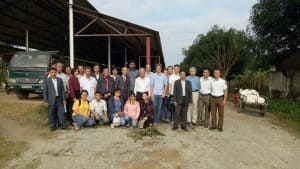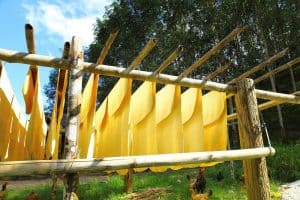By James Chang Wen Jie, Michelin
In February 2022, the Global Platform for Sustainable Natural Rubber released its Theory of Change (ToC), a document which articulates how the platform aims to positively impact the supply chain and achieve its desired states. As a representative of my company Michelin at the platform, I have been part of this intensive, fulfilling task for the last year.
While I had some previous experience with ToC frameworks for individual projects, this was the first time I was engaged in one at a multi stakeholder platform level. The major difference here, and one emblematic of the ‘GPSNR multi-stakeholder experience’, was that we needed to integrate as many perspectives and expertise as we could, from all of GPSNR’s working groups and member categories. After all, bringing this theory of change to life is a task that will eventually fall on every stakeholder represented in GPSNR. If we wanted a document that the platform could truly rally around, we needed a co-creation process built on inclusivity as well as accountability.
My fellow task team members Martin Hollands (BirdLife International) and James Laimos (Goodyear) can attest to the fact that the journey was hard work. Yet, over the two half-day platform workshops and numerous additional consultation sessions with working group chairs and interested members, the strength of the platform showed itself in the depth of insights provided during discussions, and in the rigor of the final document. I am confident we would not have arrived where we did without the unique mix of experiences and operating contexts that members had. As a representative of my organization, the exposure to a wide range of perspectives from all along the natural rubber value chain is also a valuable input to our own sustainability journey, alongside and in addition to GPSNR.

Image 1: A screenshot of me presenting how GPSNR’s Desired State will be aligned with our Theory of Change at a workshop in 2021
The most visible output of this work is this interactive web-document accessible on the GPSNR website. While it is an easy and simple introduction to our work, it is nonetheless a result of a rigorous and intensive process, which required the investment of many stakeholders (including many hours of hard deliberation by the task team!). This of course belies the question:
Does theory matter and was this time really worth it?
It’s a question the task team asked itself a number of times as well. However, my own journey in sustainability has taught me that while it is tempting to jump straight to action, issues on the ground are often more complex than they seem, and well-meaning actions can lead to unintended outcomes. We therefore not only need to know where we are going, but also need to map and understand the series of events or actions that will get us there. A theory of change exercise allows us to dig deep into the root causes of the current situation, leveraging on the experience and expertise we have across working groups and stakeholder categories to work on plans that tackle issues at their core.
Articulating the theory of change at this juncture in GPSNR’s journey also allows for a ‘stock take’ before the platform accelerates into implementation. The journey towards sustainability in the natural rubber supply chain is a complex one which requires a careful balance of environmental, social, and economic spheres. It also requires coordinating work on multiple action areas (i.e., the work of GPSNR’s many working groups) to make sure that our activities truly address identified root problems without any major gaps.
In fact, these conversations did end up identifying some gaps, and spurred us to explore solutions. For example, a member brought up the point that real impact across the world’s 6 million smallholders would mean that GPSNR would need some way to multiply its impact beyond farmers benefited through direct involvement in GPSNR or its capacity building programmes. Further conversation and the sharing of case studies from experiences in other commodities identified that a key intervention to tackle will be to empower networks of farmers that can promulgate good practices in, and beyond their communities.
As the world emerges from the aftermath of the pandemic and unprecedented supply chain disruptions, being clear on what we need to do to truly make an impact is more important than ever. I hope that interacting with GPSNR’s Theory of Change will give you a good idea of where we’re headed, and how we hope to get there!






